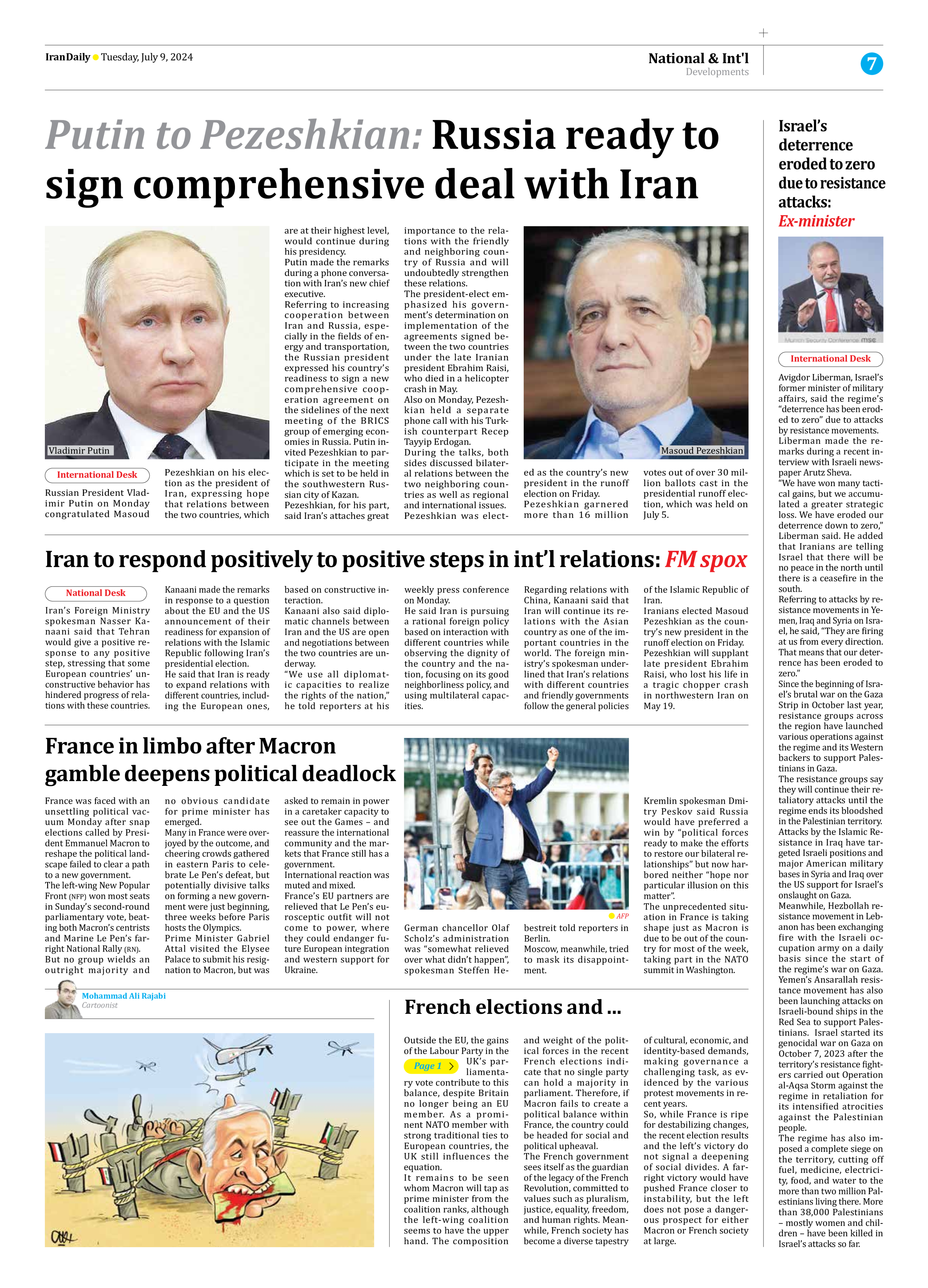
French elections and ...
Page 1
Outside the EU, the gains of the Labour Party in the UK’s parliamentary vote contribute to this balance, despite Britain no longer being an EU member. As a prominent NATO member with strong traditional ties to European countries, the UK still influences the equation.
It remains to be seen whom Macron will tap as prime minister from the coalition ranks, although the left-wing coalition seems to have the upper hand. The composition and weight of the political forces in the recent French elections indicate that no single party can hold a majority in parliament. Therefore, if Macron fails to create a political balance within France, the country could be headed for social and political upheaval.
The French government sees itself as the guardian of the legacy of the French Revolution, committed to values such as pluralism, justice, equality, freedom, and human rights. Meanwhile, French society has become a diverse tapestry of cultural, economic, and identity-based demands, making governance a challenging task, as evidenced by the various protest movements in recent years.
So, while France is ripe for destabilizing changes, the recent election results and the left’s victory do not signal a deepening of social divides. A far-right victory would have pushed France closer to instability, but the left does not pose a dangerous prospect for either Macron or French society at large.







